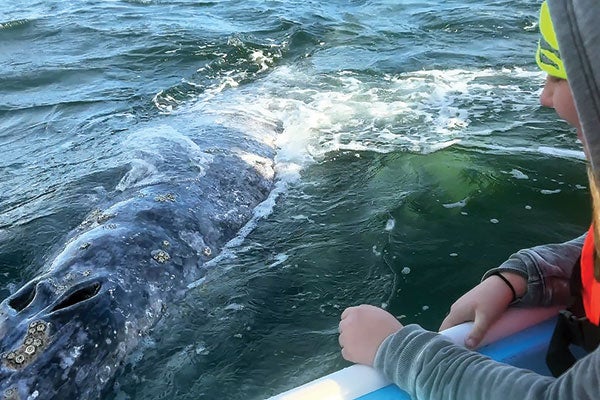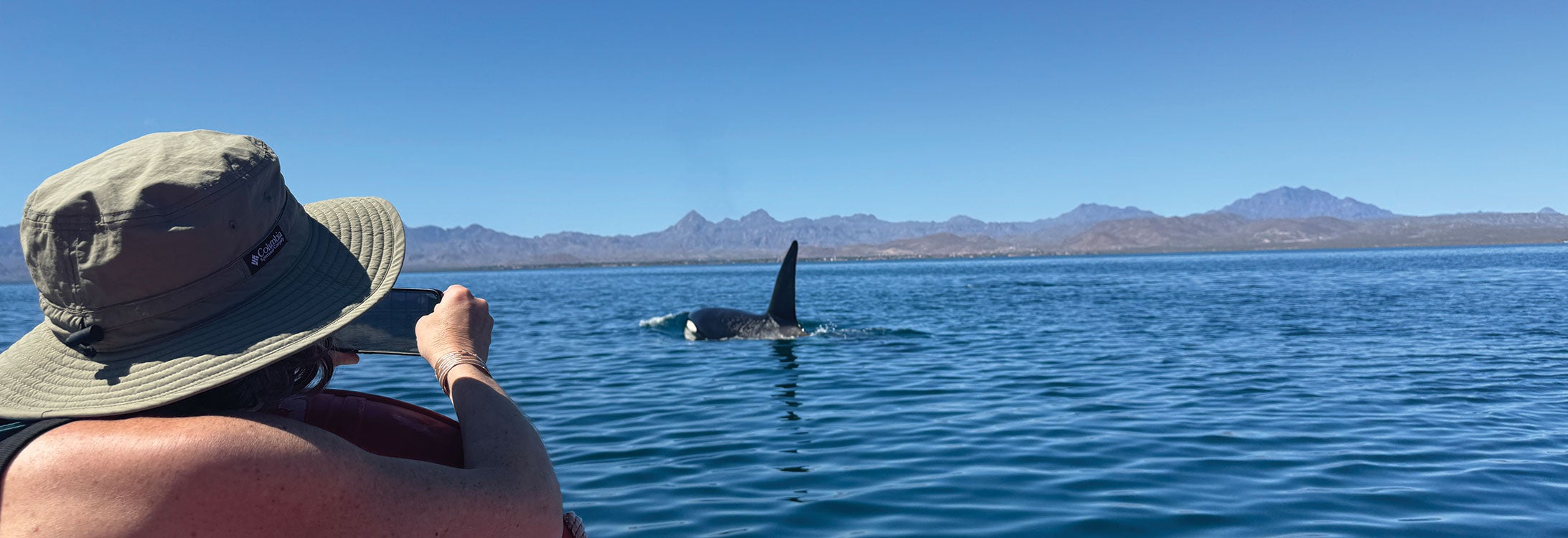ECU students spend spring break studying whales in Mexico
When people hear spring break in Mexico, they may think all-inclusive resorts and hours on a beach. For eight ECU students, spring break in Mexico meant watching whales and immersing themselves in nature during a study abroad trip to Loreto and Guerrero Negro, Baja California Sur.

Maelee Becton watches a gray whale off the coast of Baja California.
This trip was part of an Honors College seminar class led by College of Education science education faculty members Tammy Lee and Bonnie Glass that uses systems science and ocean literacy to help students explore how climate change is affecting marine ecosystems in North Carolina and the Baja peninsula in Mexico. One of the biggest draws of the trip was the gray whales, a species that completes an approximately 12,000-mile round-trip migration between the Arctic and Baja.
“We had repeatedly been told to manage our expectations in the weeks leading up to the trip because whales, like any other component of nature, are unpredictable,” said Madison Hruska, an honors student and management information systems major. “I expected to see a few gray whales, but I never imagined we would see as many as we did. We saw five different species of whales while in Loreto and more than 30 individual gray whales in Guerrero Negro.”
Experiencing a different environment is one of the reasons Glass and Lee encourage students to participate in study abroad and place-based experiences. While students in this course completed assignments around advocacy and how climate change is affecting the migratory journey of gray whales in the Pacific and right whales along North Carolina, one of the most important aspects of these trips is the informal parts of the trip and the memories created.
“When you’re in the moment, you take it for granted because you’re so hopped up on the adrenaline, but those quiet moments afterwards where you get to reflect on what’s going on and what happened are something you can’t replicate,” said Maelee Becton, a multidisciplinary studies and psychology major and Brinkley-Lane Scholar.
“We want to help students be connected to the natural world, to see different places and experience different ecosystems, especially with this lens of climate change,” Glass said. “We like to help them notice North Carolina ecosystems and how they can advocate for environmentally sound behaviors.”
Although the idea of study abroad can seem intimidating for students, especially those who have never traveled outside of North Carolina, let alone the United States, the students encouraged others to try it.
“Sign up for the class,” said Ana Cabrera Perez, a biology major and Honors College student. “It’s scary at first, but go outside of your comfort zone and experience new things.”
